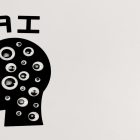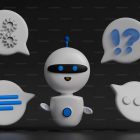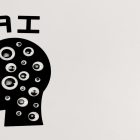The Future of Artificial Intelligence: Is it Really a Threat to Humanity?

Future of Artificial Intelligence – Artificial intelligence (AI) has been a topic of discussion for several decades, and it has now become a reality. AI has been integrated into our daily lives, from voice assistants to self-driving cars, and it is set to revolutionize how we live and work. However, there are concerns that AI could pose a threat to humanity. In this article, we will explore the future of AI and whether it is a threat to humanity.
Introduction to Artificial Intelligence
Before we delve into the future of AI, let’s first define what AI is. AI is the ability of machines to learn from experience, perform tasks that typically require human intelligence, and improve over time. AI has several subfields, including natural language processing, computer vision, and machine learning.
The Advancements in AI
AI has seen significant advancements in recent years, thanks to the availability of big data and computing power. AI is now being used in various fields, including healthcare, finance, and manufacturing. Self-driving cars are now a reality, and robots are being used to perform tasks that are dangerous for humans.
The Benefits of AI
The integration of AI into our daily lives has numerous benefits. AI can help us perform tasks more efficiently, reduce errors, and save time. In the healthcare sector, AI can be used to diagnose diseases early, leading to better outcomes. In manufacturing, AI can be used to automate processes, leading to increased productivity.
The Concerns about AI
Despite the benefits of AI, there are concerns that AI could pose a threat to humanity. One of the major concerns is the fear of AI taking over jobs. With the increasing use of AI, many jobs that were previously performed by humans are becoming automated, leading to job losses.
Another concern is the possibility of AI becoming too powerful and taking over the world. This fear is based on science fiction movies that depict AI turning against humans and becoming the dominant species. However, this scenario is unlikely to happen as long as AI is designed with ethical considerations in mind.
The Ethical Considerations of AI
The development of AI should be guided by ethical considerations to ensure that it does not pose a threat to humanity. One of the ethical considerations is transparency. AI should be designed in a way that is transparent, and the decisions made by AI should be explainable.
Another ethical consideration is bias. AI should be designed in a way that is free from bias, and it should not discriminate against any group of people. Lastly, AI should be designed with privacy in mind. The data collected by AI should be used for the intended purpose and should not be shared without the consent of the owner.
Conclusion
AI has the potential to revolutionize how we live and work, but it also poses concerns about its impact on humanity. However, with proper ethical considerations, AI can be developed in a way that benefits humanity without posing a threat. The future of AI is bright, and we should embrace it while ensuring that it is developed with ethical considerations in mind.
FAQs
What is AI?
AI is the ability of machines to learn from experience, perform tasks that typically require human intelligence, and improve over time.
What are the benefits of AI?
The integration of AI into our daily lives has numerous benefits. AI can help us perform tasks more efficiently, reduce errors, and save time.
What are the concerns about AI?
The concerns about AI include the fear of AI taking over jobs, the possibility of AI becoming too powerful and taking over the world, and ethical considerations.
What are the ethical considerations of AI?
The ethical considerations of AI include transparency, bias, and privacy.
Should we be worried about AI?
While there are concerns about AI, it is important to remember that AI is a tool developed by humans and can be designed with ethical considerations in mind. As long as AI is developed in a transparent, unbiased, and privacy-conscious way, it can be a beneficial tool for humanity.
Additionally, the integration of AI into our daily lives does not necessarily mean that it will replace human jobs. Instead, it can create new job opportunities and enhance human capabilities. For example, AI can be used to assist doctors in making more accurate diagnoses, leading to better patient outcomes.


















